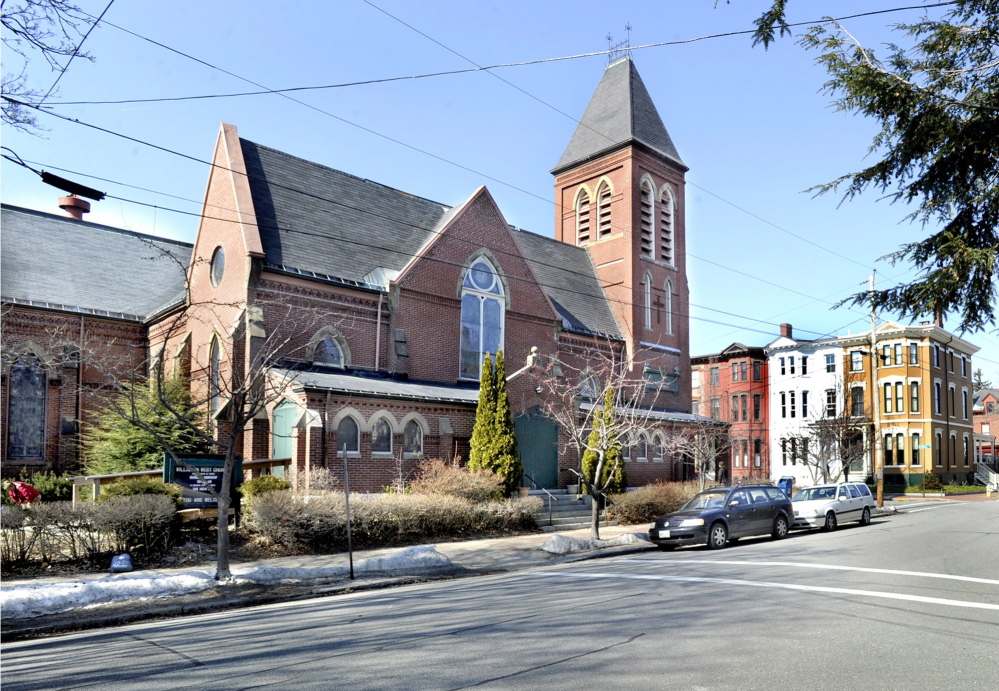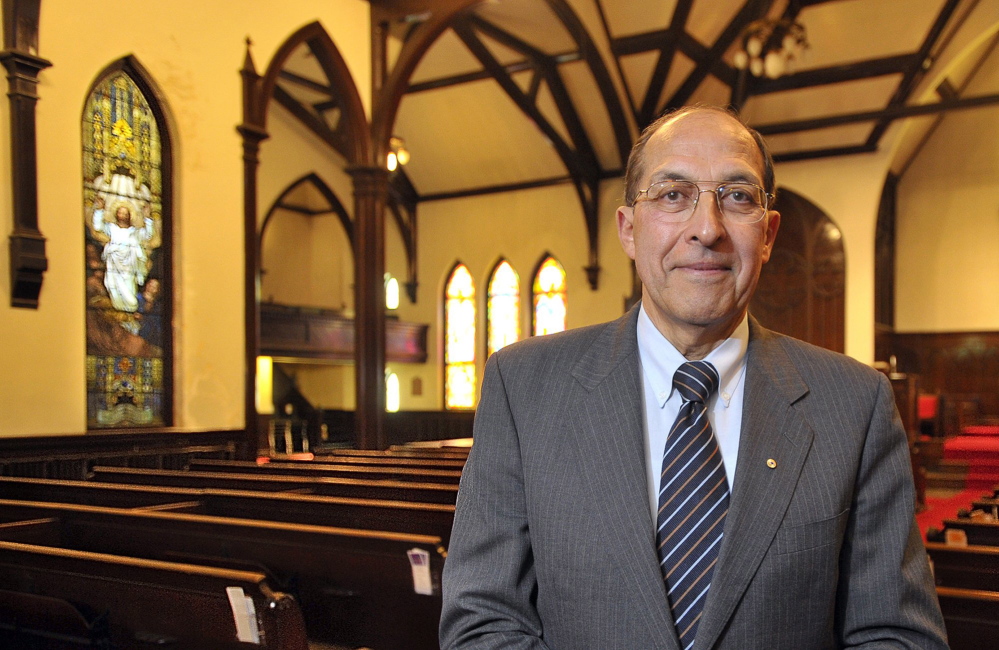The Maine Supreme Judicial Court on Thursday reversed a lower court judge’s decision, clearing the way for construction of office space in a historic West End church’s parish house.
The case arose in 2012 after the Portland City Council approved rezoning the 140-year-old Williston-West Church and attached parish house over strong opposition of the Western Promenade Neighborhood Association, prompting a group of a dozen neighbors to sue the city and an Australian businessman who owns the church.
The citizens’ group initially won their lawsuit, when Superior Court Justice Joyce Wheeler ruled in January that the city had erred when it rezoned the church property. She said the rezoning was inconsistent with the city’s comprehensive plan, which guides development throughout the city.
The city appealed Wheeler’s decision, and both sides argued their cases before the panel of justices on the state’s highest court on Sept. 9.
The Maine Supreme Judicial Court ruled unanimously in a 6-0 decision Tuesday that the City Council acted appropriately in granting conditional rezoning of the church property and did not violate any state laws.
“In light of the evidence before the City Council and the various competing goals of the comprehensive plan, the City Council had a rational basis for its conclusion that the (conditional zoning agreement) was consistent with the comprehensive plan as a whole, and struck a reasonable balance among the competing goals of the plan,” the high court ruled in its 15-page decision, authored by Justice Donald Alexander.
The Williston-West Church board of trustees sold the property at 32 Thomas St. in December 2011 after its congregation had shrunk for years. Businessman Frank Monsour bought the 19,000-square-foot church and attached 11,000-square-foot parish house, doing business as 32 Thomas Street LLC.
Monsour reached a rezoning agreement with the city months after buying the property to restore the church portion of the property to be used as a community hall and convert the parish house into a 14-person office building on the ground floor and two or three residential units elsewhere in the building.
Monsour, who is the majority owner of the software development company Majella Global Technologies, had planned to convert a portion of the parish house into office space as the base for Majella’s operations, according to court records.
The church, built in 1877, was designed in the High Victorian Gothic style by Francis Fassett. The parish house, designed by Portland’s best-known architect, John Calvin Stevens, was added in 1904. The church is on the National Register of Historic Places.
Copy the Story LinkSend questions/comments to the editors.




Success. Please wait for the page to reload. If the page does not reload within 5 seconds, please refresh the page.
Enter your email and password to access comments.
Hi, to comment on stories you must . This profile is in addition to your subscription and website login.
Already have a commenting profile? .
Invalid username/password.
Please check your email to confirm and complete your registration.
Only subscribers are eligible to post comments. Please subscribe or login first for digital access. Here’s why.
Use the form below to reset your password. When you've submitted your account email, we will send an email with a reset code.